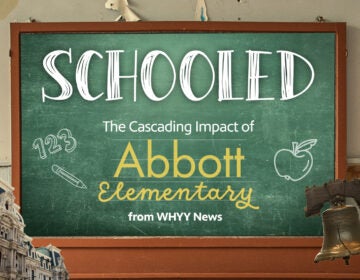What will Tom Wolf’s win mean to Pennsylvania classrooms?
ListenEducation advocates got exactly what they wanted in Pennsylvania’s gubernatorial election Tuesday: a progressive Democrat who puts education at the top of his priority list.
Gov.- elect Tom Wolf has big plans for providing relief to resource-strapped classrooms across the commonwealth, but onlookers and lawmakers on both sides of the aisle concur that Wolf’s agenda faces a very steep climb.
Despite a fervent effort to push incumbent Gov. Tom Corbett out of office, Wolf supporters aren’t so naive to think the York county businessman can wave a magic wand and give schools all the resources they need immediately.
“It was never going to be over Nov. 4,” said Helen Gym, founder of Parents United for Public Education. “That was just the first step in a really long haul to right the state and put it back on track.”
“I mean right now, starting today, nothing’s different,” said Susan Gobreski, executive director of Education Voters PA. “As long as people understand that we took a great leap forward, but we’re not there … we can continue to send a message to the legislature, and I think they’re going to have to listen.”
The legislature, though, underwent changes itself on Election Day, and not in ways that will make Wolf’s agenda any easier. Republicans gained three seats in the state Senate and at least eight in the House of Representatives.
“The new configuration of the legislature will make it harder for some policies, but I don’t think there’s any question that the electorate sent a message that they want to see more education funding, and they think it’s time for a severance tax,” said Sharon Ward, executive director of the Pennsylvania Budget and Policy Center, a left-leaning think tank.
First hurdle: Severance tax
The severance tax Ward references is a 5 percent statewide tax on natural gas drilling that Wolf championed through his campaign. Wolf believes the tax will generate $1 billion in its first year, the largest chunk of which he wants to use to increase funding for K-12 education. Wolf is on record saying the tax should be “easy” to advance.
Republican lawmakers doubt the tax will actually generate anything close to Wolf’s estimate; they also aren’t ready to rubber stamp it.
“Applying a severance tax is not as simple as saying, all right, boom, it’s 5 percent, end of story,” said Erik Arneson, spokesman for senate majority leader Dominic Pileggi, a Delaware County Republican. “There are a lot of details that go into exactly where, when and how a tax like that is administered and levied.”
Hanging over every conversation about increased spending is this fact: The state is likely to face a $2 billion deficit next year in large part because last year’s budget relied on a large chunk of one-time, nonrecurring funds.
“Those have to be addressed first,” said Arneson. “They can be addressed one of two ways, of course – by allocating the funds to pay for them or by cutting back the costs somehow.”
Translation: Wolf won’t be able to increase education spending unless he first finds a way to make up for the looming $2 billion deficit.
To Donna Cooper, executive director of Public Citizens for Children and Youth, it’d be foolish to think Wolf can keep the rest of budget status quo while raising education spending without a revenue-raising measure in addition to a drilling tax.
“The wiser course of action for the legislature and the governor is to, in year one, proceed with a personal income tax increase,” said Cooper, who added that there may be ways to navigate the 2015 budget without dedicating $2 billion toward the status quo at the outset.
Cooper admits passing an income-tax increase will be very difficult to advance through the increasingly conservative legislature. Still, she thinks it’s possible if Democrats compromise on key parts of the Republican agenda, which could mean trading votes on pension reform or liquor privatization.
Education funding panel awaits Wolf appointments
There are a few things that Wolf will be able to influence immediately. He’ll get to appoint three members to the state commission currently working to create an education funding formula that aims to distribute statewide school resources in a predictable, more equitable way.
State Sen. Andy Dinniman, the minority chair of the Education Committee who sits on the funding commission’s bipartisan panel, says the commission’s ability to find common ground could be a bellwether for Wolf’s education platform.
“If the commission itself does not come to an agreement,” said Dinniman, “then it’s going to almost be impossible.”
Throughout his campaign, Wolf took issue with certain segments of the charter sector, calling for more accountability, and citing the savings reforms could generate.
While remaking the state’s charter law or crafting charter reform legislation would require legislative approval, there are things Wolf could accomplish unilaterally.
Specifically, he could guide the Pennsylvania Department of Education to enact charter policies that are friendlier to urban districts such as Philadelphia and his hometown of York. One would be to instruct the department to stop payments for charters that enroll students above agreed-to caps.
Wolf could also urge the attorney general to more vigorously investigate charter-sector malfeasance.
But even if Wolf gets some of these things done, and succeeds in winning more funding for classroom spending, many say the long-term health of all districts, Philadelphia especially, will improve only with increased accountability measures.
“More revenue alone isn’t going to begin to solve Philadelphia’s long-term fiscal and academic problems,” said Jonathan Cetel, executive director of the school reform group PennCAN.
Wolf will inherit the executive responsibility for the education of the state’s children on Jan. 20, inauguration day.
WHYY is your source for fact-based, in-depth journalism and information. As a nonprofit organization, we rely on financial support from readers like you. Please give today.




